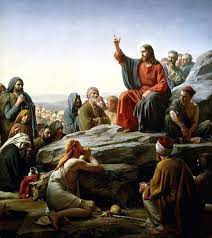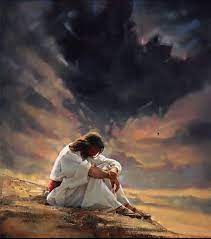Why Communion?
- The Rev. Thomas C. Pumphrey

- Oct 26, 2022
- 3 min read
For as often as you eat this bread and drink the cup, you proclaim the Lord's death until he comes.
1 Corinthians 11:26
Dear Friends in Christ, Some American protestant traditions don’t often have communion. Other churches, including ours, has communion every week. Why? Initially, the protestant reformation sought greater and more frequent availability of communion for the people, in protest of common irresponsibility of the clergy at the time. But some later protestants pushed harder against the place of the sacraments in the church and emphasized preaching more. In recent decades, some churches have styled themselves more like rock concerts with less churchy practices, so as to appeal to people with no church background. But even they will sometimes celebrate communion. The early church combined Jewish worship practices with the celebration of the Lord’s Supper. These two pieces are what gives us the“Liturgy of the Word” (readings from scriptures, sermon, creed and prayers) and the “Liturgy of the Table.” Jewish Christians in Jerusalem still went to the Temple, especially on the Sabbath, but they also celebrated the resurrection on the Lord’s Day, Sunday, the first day of the week, the day of the week on which Jesus rose from the dead. They did so with the Lord’s Supper, a practice Jesus himself gave them to do. Soon, Sunday became the Christian sabbath, and Christians met in people’s homes. They read from the Old Testament and from the Gospel accounts and letters from the Apostles (what would become the New Testament), and they shared the Eucharist—the feast of bread and wine that brings us Christ’s presence among us. Paul wrote about this practice in his first letter to the Corinthians (read chapter 11:17-34). The church sees the Eucharist as us entering into the life, death and resurrection of Jesus. We lift our hearts to the Lord, seeking his presence, and we ask the Holy Spirit to sanctify the bread and wine, that in it we might receive the presence of Christ in a more special way that he is always present. The Eucharist is communion with Christ—connecting personally with Jesus, his life, death and resurrection. The Eucharist is communion with his church—connecting personally and spiritually in this sacred meal with each other, forgiven, restored, reconciled to God and to each other. The Eucharist is communion with his church that is greater than the group in one building—we share communion with all the church throughout the world and throughout time. In Christ, we are spiritually linked to one another, alive in a new life in Christ. This is the gift that Jesus gave us in this sacrament, and that he commanded us to continue. This is the center of Christian worship and the center of Christian proclamation. In the life, death and resurrection of Jesus, God forgives us our sins and gives us new life in him. So we are Baptized into him, and we then come to his table as a community to be nourished by him. The Eucharist grounds us each week, not in the opinions of the preacher, but in Holy Scripture, and in the centrality of Jesus, his sacrifice for us and his gift of new life. As you join in the Eucharist this Sunday, remember the presences of our Lord with you, and remember the presence of the multitudes of the faithful connected to you in this Holy Communion. This is why we call this sacrament “Eucharist,” which means “Thanksgiving.” Yours in Christ, -Tom




